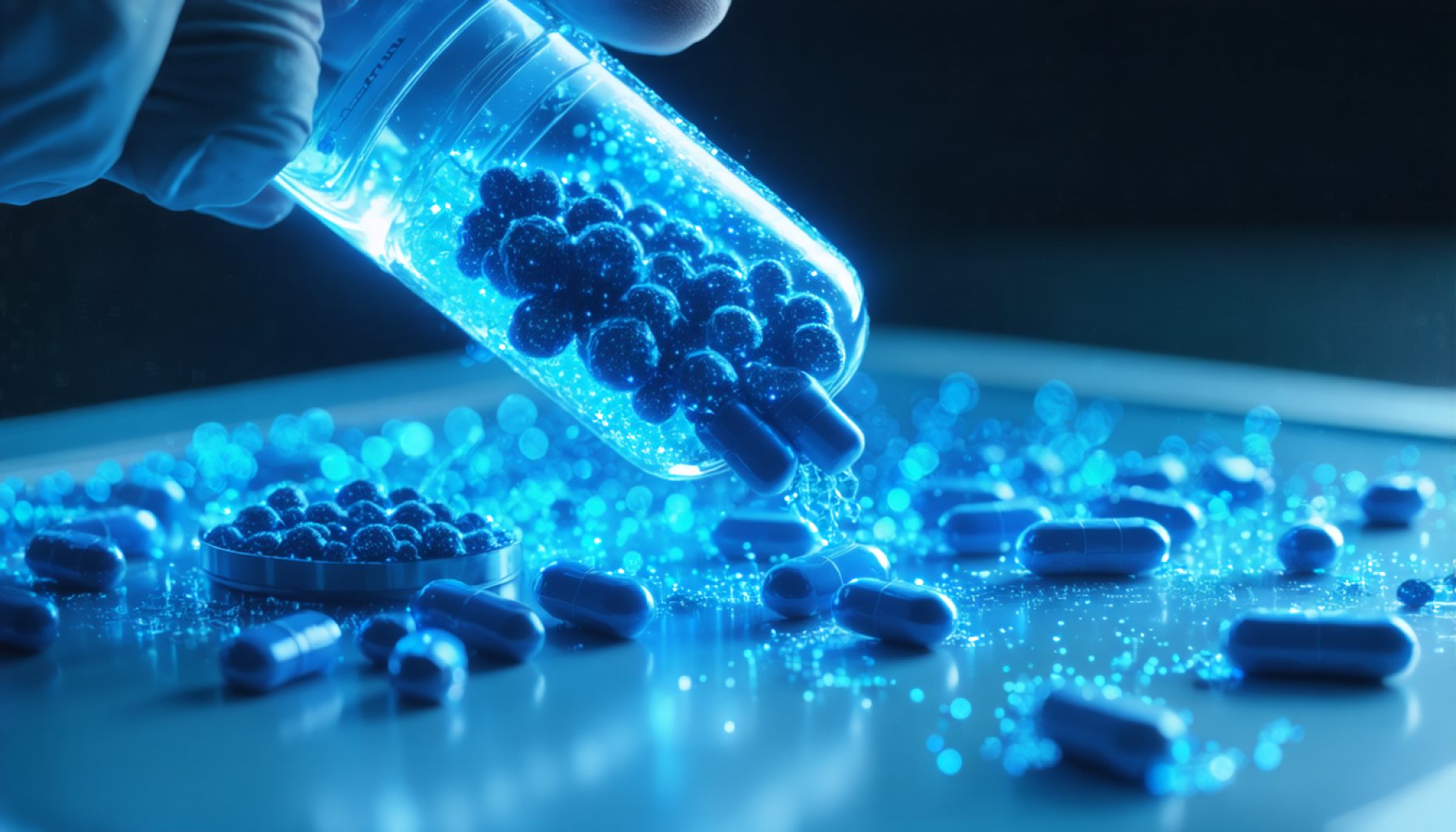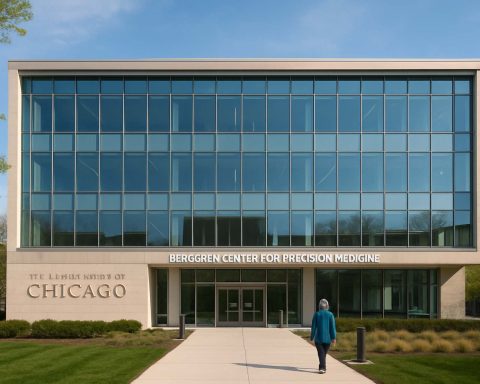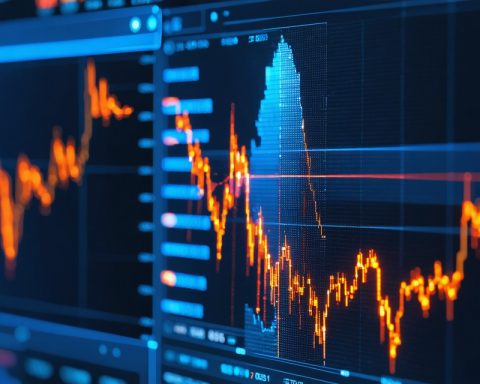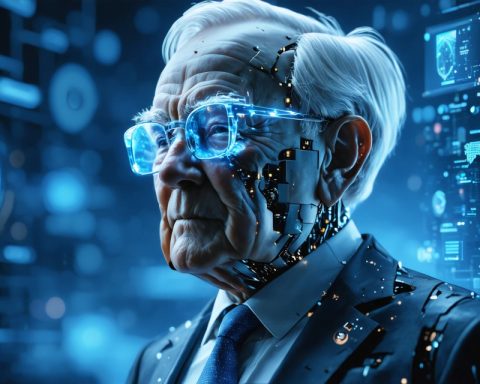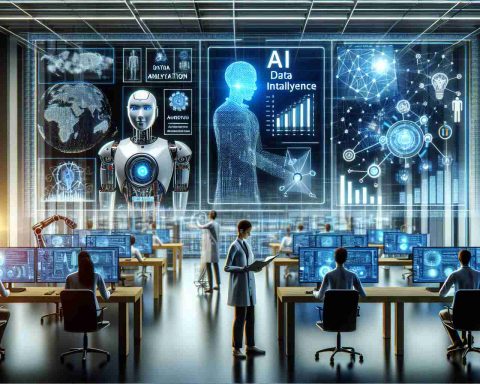- The Icahn School of Medicine at Mount Sinai has launched the AI Small Molecule Drug Discovery Center, integrating AI with traditional drug development.
- The center aims to accelerate the discovery of new small-molecule therapeutics, making drug development faster and more precise.
- AI algorithms will enhance the identification of potential drug candidates, reducing the time and cost of discovery.
- The center focuses on designing new molecules, refining existing compounds, and predicting drug-target interactions.
- Collaboration with pharmaceutical giants, biotech firms, and academic institutions is central to advancing drug development.
- This initiative is part of broader AI efforts at Mount Sinai, emphasizing precision therapeutics and understanding diseases at a molecular level.
- Guided by an expert advisory board, the center is set to usher in significant medical breakthroughs.
- The endeavor represents a significant commitment to redefining medical treatment landscapes, with the potential to address unmet medical needs.
Pioneering a seismic shift in pharmaceutical research, the Icahn School of Medicine at Mount Sinai has unveiled its groundbreaking AI Small Molecule Drug Discovery Center. This cutting-edge hub seeks to transcend the barriers of traditional drug development by integrating artificial intelligence with conventional methods. The promise? To engineer new small-molecule therapeutics at a pace and precision previously unimaginable.
The conventional labyrinth of drug discovery—a costly, protracted process—could soon be a relic of the past. Instead, AI-powered algorithms promise to traverse vast chemical landscapes, identifying potential drug candidates with unparalleled speed. Imagine, instead of years of laborious experimentation, researchers, like skilled navigators, can swiftly pinpoint the most promising compounds among millions of possibilities. It’s akin to exploring a vast galaxy with a high-powered telescope that spots planets ripe for life.
At the helm of this transformative endeavor is Avner Schlessinger, a visionary in pharmacological sciences. Under his leadership, the center is not merely dabbling in AI; it harnesses machine learning, chemical biology, and biomedical data science to tackle some of humanity’s most daunting health challenges. From cancer to neurodegenerative diseases, the potential for rapid therapeutic advancements shines like a beacon of hope for patients worldwide.
The initiative revolves around three pivotal areas: designing innovative drug-like molecules through generative AI, refining existing compounds for improved efficacy and safety, and predicting drug-target interactions to repurpose existing drugs strategically. Here, the synergy between AI and human expertise is palpable. Imagine researchers armed with AI’s predictive prowess, foreseeing the properties of molecules before they’re ever synthesized. The hours saved and the potential for breakthrough discoveries paint an exhilarating picture of the future.
Collaboration sits at the heart of the center’s mission. By forging alliances with leading pharmaceutical giants, biotech firms, and academic institutions, the center aims to propel drug development forward. Additionally, the center serves as a cradle for future scientists, nurturing talent through seminars and AI-driven hackathons.
Notably, this venture is a beacon among other AI-centered initiatives at Mount Sinai, like the recently launched Center for Artificial Intelligence in Children’s Health. The shared vision is clear: AI is reshaping our understanding of diseases at a molecular level, shifting paradigms from conventional methods to precision therapeutics tailored to biological insights.
The Center’s direction is honed by a distinguished advisory board. Each member brings a blend of deep expertise and innovation, from synthetic chemistry to the frontiers of AI in healthcare. Together, they’re poised to usher in an era of medical breakthroughs far beyond the current horizon.
Mount Sinai’s bold leap into AI-infused drug discovery is not merely an advance in technology. It is a commitment to redefine the landscape of medicine, promising treatments that meet previously unaddressed medical needs. As these efforts unfold, the world watches in anticipation—what new cures might emerge from this union of human ingenuity and artificial intelligence? The potential is boundless, and the journey has just begun.
How AI is Revolutionizing Drug Discovery: What You Need to Know
Introduction
The Icahn School of Medicine at Mount Sinai is spearheading a transformative era in pharmaceutical research with its AI Small Molecule Drug Discovery Center. By integrating artificial intelligence into drug development processes, this center aims to radically improve the speed and accuracy of discovering new therapeutics, potentially revolutionizing treatments for diseases like cancer and neurodegenerative disorders.
Enhanced Drug Discovery Process
1. Speed and Precision: AI algorithms can rapidly analyze vast chemical landscapes to identify potential drug candidates. This reduces the traditionally long timeline of drug discovery, which can take years and significant financial investment.
2. Generative AI for Molecule Design: The center uses generative AI techniques to create innovative drug-like molecules. These advanced models can predict molecular properties before synthesis, offering a strategic advantage in developing more effective drugs.
3. Drug Repurposing: AI aids in predicting drug-target interactions, allowing for the strategic repurposing of existing medications. This could unlock new therapeutic uses for approved drugs, offering quicker treatment options for patients.
Integration of AI and Human Expertise
– Collaborative Efforts: By partnering with pharmaceutical companies, biotech firms, and academic institutions, the center fosters an environment where AI and human expertise work in synergy, propelling drug development forward.
– Talent Development: The center also aims to nurture future scientists through educational initiatives like seminars and AI-driven hackathons, highlighting its commitment to long-term innovation.
Industry Trends and Market Forecasts
– AI in Pharma: The use of AI in the pharmaceutical industry is expected to continue growing, with market forecasts suggesting significant investment and technological advancements over the next decade.
– Challenges and Limitations: While AI offers immense potential, challenges such as data privacy, ethical considerations, and the need for high-quality training data remain. Addressing these will be crucial for maximizing AI’s benefits.
Security and Sustainability
– Data Security: As AI systems require vast amounts of data, ensuring robust data security measures is critical to protect sensitive health information.
– Sustainable Solutions: By reducing resource-intensive processes, AI contributes to more sustainable drug discovery methods, conserving both time and financial resources.
Pros and Cons Overview
Pros:
– Accelerated drug discovery and development processes.
– Enhanced precision in identifying potential drug candidates.
– Potential for discovering new uses for existing drugs.
Cons:
– Dependence on high-quality data and advanced computational resources.
– Ethical and data privacy concerns must be addressed.
– Initial implementation costs for AI systems can be high.
Actionable Recommendations
– Stay Informed: Keep abreast of ongoing developments in AI applications within pharmaceuticals to stay updated with cutting-edge treatments.
– Foster Collaboration: Encourage partnerships between technology and pharmaceutical companies to leverage AI fully.
– Education and Training: Participate in educational programs and workshops on AI-driven drug discovery to build expertise in this field.
Conclusion
Mount Sinai’s AI Small Molecule Drug Discovery Center represents a pivotal shift in how the pharmaceutical industry approaches drug development. By merging AI with traditional methods, it promises quicker, more cost-effective therapeutic advancements. As we move forward, the integration of AI in pharmaceuticals will undoubtedly continue to reshape the landscape of medicine.
For more information, visit the main page of Icahn School of Medicine at Mount Sinai.
